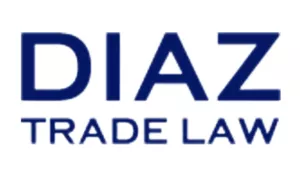The Department of Homeland Security's (DHS) Forced Labor Enforcement Task Force (FLETF) released an update to the Strategy to Prevent the Importation of Goods Mined, Produced, or Manufactured with Forced Labor in the People's Republic of China.
Strategy Background
DHS released the first publication of the UFLPA Strategy in June 2022. The strategy outlines a multi-pronged approach to combating forced labor in global supply chains.The strategy includes a comprehensive assessment of the risk of importing goods with forced labor in the PRC, high priority sectors for enforcement, guidance to importers, recommendations to accurately identify affected goods, and more. DHS released the first update to the publication in August of 2023.
The Latest Update
The update builds on two years of the Administration's enforcement of the UFLPA. The latest strategy identified new high priority sectors for enforcement – aluminum, polyvinyl chloride (PVC), and seafood. These industries were identified due to higher risk of forced labor or state labor transfer of Uyghurs and other ethnic minorities from the Xinjiang Uyghur Autonomous Region (XUAR).
Entities in these sectors will now be prioritized for review for enforcement actions such as inclusion on the UFLPA Entity List, sanctions, export limitations, and visa restrictions.
Other products previously identified as high priority such as apparel, cotton and cotton products, silica-based products including polysilicon, and tomatoes remain high priority sectors.
The latest updates also outline how the FLETF has significantly advanced their objectives through several initiatives, such as strong enforcement by U.S. Customs and Border Protection (CBP); expansion of the UFLPA Entity List; new high priority sectors for enforcement; and greater collaboration with stakeholders.
Revisit Your Due Diligence Efforts
With the addition of these new high-priority sectors for enforcement, importers should give extra attention to due diligence efforts on supply chains that interact with these sectors.
Diaz Trade Law has significant experience in a broad range of import compliance matters including forced labor compliance and enforcement mitigation.
The content of this article is intended to provide a general guide to the subject matter. Specialist advice should be sought about your specific circumstances.


